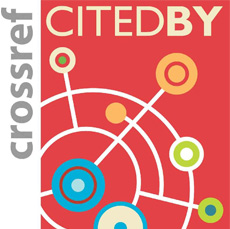ISSN : 1226-4946(Print)
ISSN : 2288-5412(Online)
Yeats’s Disenchantment with Nationalism and His Pursuit of Universal Mind
Yoo Baekyun
Abstract
The purpose of this paper is to chart Yeats's evolving attitudes towardsnationalism and mysticism and his eventual turn to universal mind by reading hispoems and proses written in the nineties and early twentieth century. Although heconverted to nationalism in 1886 by writing poems combining his nationalist agendaand mystical ideas, he slowly showed skepticism about his nationalist agenda andabout the realization of a mystical vision. My argument is that this change stemsbasically from his understanding of the limitations of nationalism: independence asisolation by analyzing some poems in The Rose (1893) and The Wind Among theReeds (1899). In addition, Yeats revealed on many occasions his weariness atpolitical skirmishes into which he was constantly dragged because of his doubleallegiance to art and politics and to England and Ireland. Although he turns to theIrish Literary Theater, announcing a need to separate art from politics, his place inIrish modern history makes it difficult to keep himself from engaging in politicalbattles which gradually instill bitterness and hatred into his poetry. It is alsoimportant to notice that Yeats talked about universal mind during this period whenhe expressed his skepticism about the possibility of achieving the state of onenessand his frustration about needless political fights. Certainly, Yeats’s dealing withuniversal consciousness and his disappointment in nationalist politics due to itsprovincial nature and its tendency to fight with each other leads us to see whereYeats is eventually moving to in the future: the pursuit of unity by reconciling Eastand West. Yeats’s gradual movement towards universalist agenda is necessary andinevitable to deal not only with the narrowness of nationalism and nationalistpolitics, but also with his ambivalence towards England and Ireland and his bitterness caused by his involvement in vicious political fights. Our understandingof Yeats’s gradual transition from nationalist to universalist is crucial in followinghis evolving attitude towards the spiritual traditions which he resumes to study in1912 and his use of them for his later political objectives: a realization of a unifiedworld. Unfortunately, however, Yeats’s pursuit of universal qualities is clouded byhis hatred of the urban Catholic middle class.
Keywords :
Yeats's nationalism,
mysticism,
universal mind/consciousness,
arts and politics,
the state of oneness,
limitations of nationalism,
a reconciliation of East and West,
예이츠의 민족주의,
신비주의,
보편적 마음/의식,
예술과 정치,
합일의 상태,
민족주의의 한계,
동양과 서양의 조화










